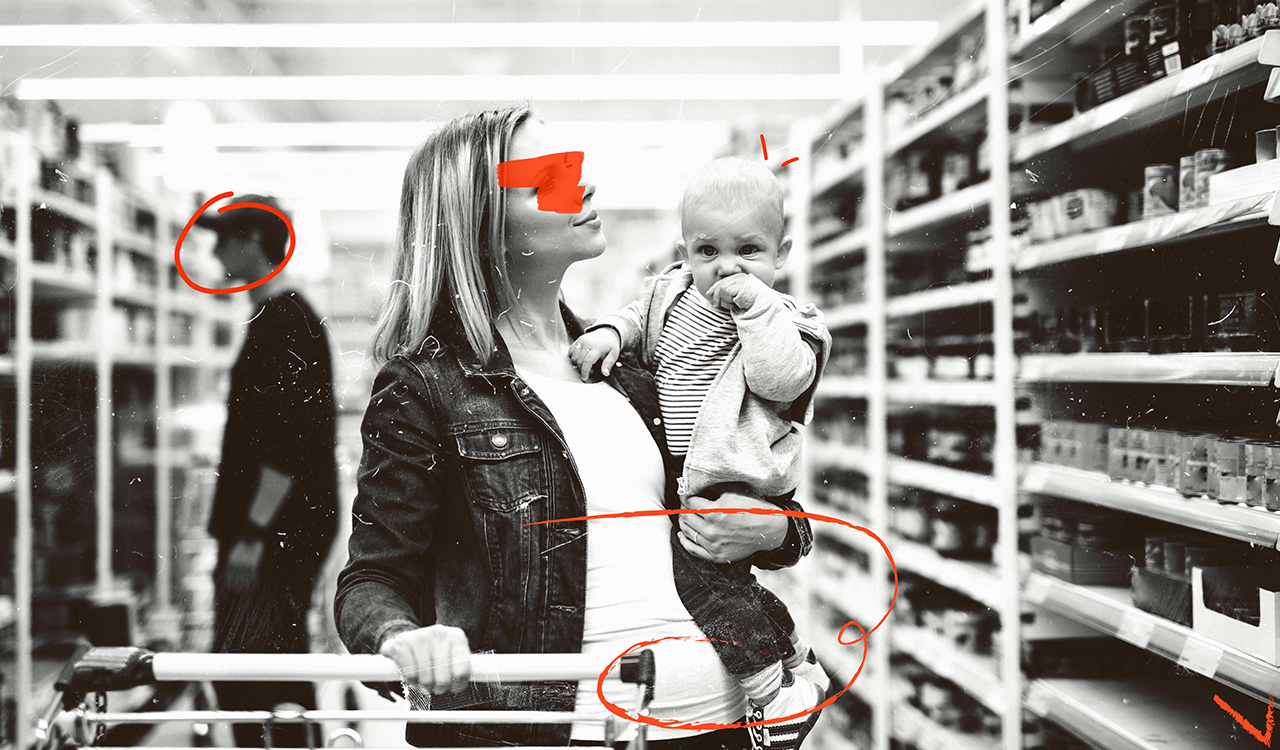Oxford Languages (the dictionary people) defines nostalgia as “a sentimental longing or wistful affection for the past, typically for a period or place with happy personal associations.” But nostalgia isn’t relegated to time periods that we’ve personally experienced. Remember the late 60s resurgence in the early aughts? I remember scouring Woodstock DVDs for footage of my teen dream, Roger Daltrey from The Who. I also ransacked my mom’s boxes of high school mementos to resurrect a pair of vintage Levi’s cords and hot pink running shorts that she had worn her senior year.
Gen Z nostalgia is characterized by a deep longing for a simpler time. Overstimulation is the reason they want to dress and act like millennial’s did in the early aughts. But isolation is the other factor at play. Gen Z is faced with a billion choices for any given decision. There are no hard and fast rules for old questions like what to wear, what bands to listen to, or which celebrities to follow.
But there are a few key differences between millennials’ affinity for the hippie era and Gen Z’s nostalgia for millennial youth. Let’s take a look at the sobering factors contributing to Gen Z’s need for a millennial adolescence they never had and the trending retail categories emerging from it.
Why Is Gen Z So Obsessed with Millennial Childhoods?
Gen Z doesn’t have an innate affinity for avocado toast and frosty eyeshadow. Its obsession with millennial youth is the result of conditioning. But what kind of conditioning could lead an entire generation to fixate on a generation of people nearly old enough to be their parents? Millennials didn’t think Gen X was cool, with the exception of The Cranberries. Say what you want about geriatric millennials… at least we had the foresight to idealize Boomers’ hippie adolescence, rather than trying to emulate trends once worn by our parent’s work colleagues.
Gen Z nostalgia is characterized by a deep longing for a simpler time. Overstimulation is the reason they want to dress and act like we did in the early aughts. But isolation is the other factor at play. Gen Z is faced with a billion choices for any given decision. There are no hard and fast rules for old questions like what to wear, what bands to listen to, or which celebrities to follow. This phenomenon is described perfectly by mental health counselor Dr. Joanne Frederick, on the next gen publishing platform, Her Campus:
“Because there is so much information Gen Z can choose to consume, they lack the shared experiences previous generations had when everyone saw the same commercials, watched the same TV shows, or listened to the same music. Therefore, Gen Zers turn to early 00s shows, like Friends, Sex and the City, and That 70s Show, to experience life in a way that they never have, before ubiquitous social media and texting.”
Booming Categories and Those to Watch
The resurgence of digital cameras is just the beginning. While it’s true that, as Statista reports, the digital cameras market is expected to grow annually by 2.40 percent, to reach US $22.89bn this year, this wouldn’t be so fascinating if 97 percent of adults didn’t own a smartphone of some kind. Most of which are equipped with advanced photographic capabilities and filters the likes of which this millennial would’ve traded her Sublime CD for, back in the day. (To be fair, I didn’t even flinch when Urban Outfitters began selling Polaroid cameras. But digital cameras are very high investment purchases for nostalgic purposes alone.)
We’ve talked before about 90s fashion being back in full swing. The latest iteration? Shameless layering, such as t-shirts over long sleeves (à la Josh Hartnett in The Faculty), dresses over pants, and pants riding so low that you’ll pray your teen wears something else over them. Next gens aren’t just taking the fits and leaving the rest either. They’re also resurrecting old brands from a bygone era (mine, specifically) and breathing new life into once forgotten mall retailers.
Retailers Once Forgotten Are Coming for Your Market Share
Just take a look at Abercrombie & Fitch. The brand struggled to find its footing once millennials grew up to realize that the company’s whitewashed, old money aesthetic wasn’t helpful to all of the marginalized peoples who weren’t represented –– queer, differently abled, curvy, Native, Asian, Black, non-binary, non-cookie-cutter models were few and far between. Since then, however, the brand has made a 180-degree turn towards inclusive sizing and a strong digital strategy. And in 2021, Abercrombie reported its highest sales since 2014.
But Abercrombie and Hollister are far from the only early 2000s brands carving out a new life in 2023.
Juicy Couture, True Religion, and Ed Hardy have also benefitted from the 90s resurgence mixed with a strong digital-first strategy. By offering lower price points, reproducing high demand items (like Juicy Couture’s velour tracksuits, Gap’s eponymous “Gap” hoodie, and so on), and focusing on social media and AR, these legacy brands have managed to impress discerning next gen consumers.
As have the myriad kid and tween retailers of yesteryear that have now become brands: Toys R Us –– which is now a subsidiary of Macy’s, The Limited Too –– which is now a brand owned by BR Brand Holding LLC, and dELiA*s –– which has been sold by Dolls Kill Clothing for years. Unlike the other retailers on this list, Toys R Us is unique in that its resurgence is largely a physical store presence within Macy’s. Which wouldn’t be an issue, if Macy’s associates kept the Toys R Us section a fifth of as clean and well organized as the store that I remember from the early aughts.
Looking Forward (By Going Backward)
My suggestion for reviving brands of yesteryear? Fewer sub-par knockoffs of respected originals. Fewer dirty, Kleenex-ridden toys stuffed on brightly colored plastic in old Macy’s. (Need I remind you what happened at the “Woodstock ‘99?” Violence and vandalism, my friends.) We can’t relive the past. Our only hope is to bring that zeitgeist to new demographics in authentic ways. My suggestion? Lean in on full-fledged, nostalgia-based pop-ups where consumers from all demographics can reminisce and share experiences. More photo booths and selfie stations. More Nickelodeon characters and Play Doh. More excitement on social media.
The keyword is “fun.” Shameless, sustaining, hands-on, conversion driving fun. Gen Z wants retailers to remember how to play. So, let’s make the technicolor daydream that we call the present day worth the years of lockdown we endured.




